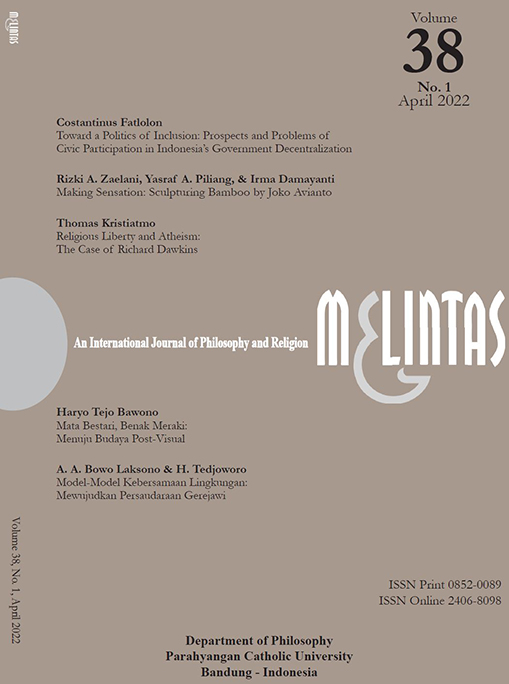Toward a Politics of Inclusion: Prospects and Problems of Civic Participation in Indonesia’s Government Decentralization
Main Article Content
Abstract
This article assesses the shortcomings and possibilities of deepening civic participation in Indonesia’s government decentralization. Applying an expositive-critical-reconstructive approach and using Habermas’s theory of law and democracy, this study addresses the main question: “What democratic principles must be adhered to by Indonesian citizens to achieve the purpose of government decentralization?” This article argues that government decentralization in Indonesia has brought democracy closer to the people; however, it did not necessarily result in the active participation of citizens in local government affairs and in crafting local regulations. This deficit requires the local governments to institutionalize the ideal lawmaking procedures and inherit democratic ethos. The local people must be educated and capacitated to maximize the benefits of government decentralization, while civil society groups step in to practice democratic principles in civic participation and lawmaking.
Article Details

This work is licensed under a Creative Commons Attribution-NonCommercial 4.0 International License.
MELINTAS applies the Creative Commons Attribution (CC BY NC) license to articles and other works we publish. If you submit your paper for publication by MELINTAS, you agree to have the CC BY NC license applied to your work.
